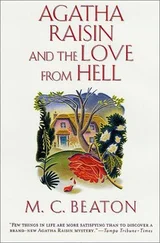In October 1978 McGovern did succeed in getting most of his fellow senators to sign on to a letter to Secretary of State Vance. 138Eighty senators called for international action to halt the Cambodian genocide, urged the secretary to introduce the issue immediately at the UN Security Council, and criticized the Carter administration’s lethargy. In August 1978 the United States had finally submitted to the UN Human Rights Commission a 667-page report on the atrocities based on refugee testimony, but the senators noted that this belated, written submission “seems to be a rather low-key approach in light of the enormity of the crimes being committed in Cambodia.” 139
The First Visit
By 1978 the Khmer Rouge were feeling more vulnerable to the outside world. They had moved from scapegoating their own citizens to scapegoating their neighbors. The KR had begun trying to infiltrate and occupy southern Vietnam in 1977, and border skirmishes had intensified.In early December 1977,Vietnam, fed-up with Pol Pot’s attacks and backed by the Soviet Union, had sent some 60,000 troops just inside the Cambodian border. 140A propaganda war between the two sides had ensued, publicly confirming Ken Quinn’s 1974 conclusion that no Communist monolith existed in Indochina. On December 31, 1977, the Cambodian Foreign Ministry, which had kept past clashes with Vietnam silent, denounced Vietnam’s “ferocious and barbarous” aggression, comparing it to Hitler’s annexation of Czechoslovakia. Pol Pot severed relations with Vietnam. Throughout 1978 the Khmer Rouge took measures aimed at improving their public image, inviting diplomatic visitors and friendship delegations, pledging reforms, and quietly relaxing their xenophobic stance toward the outside world. In March 1978 Pol Pot announced that Cambodia was “open to our friends…We invite them to visit our country.” 141
Elizabeth Becker, the Washington Post metro reporter, had been clamoring to get back into Cambodia since she left in 1974. She had written more than a dozen letters paying what she remembers as “disgusting”homage to the KR’s “glorious revolution” in the hopes of winning a visa. Whenever Ieng Sary visited the United Nations for the annual General Assembly session, Becker trekked up to New York to appeal to him in person. In November 1978 she received a telegram from the KR (postmarked from Beijing) inviting her to Cambodia. She was one of three Western guests chosen.
Becker did not hesitate for a second. All of the fears that had driven her from the country in 1974 had been overtaken by a desperate desire to peer behind the Khmer curtain. She felt as if she had been “put in a coffin” since the KR sealed the country. She remembers:
I hadn’t guessed they would isolate themselves like they did. I mean, the idea that you could go to an airport and it would never say “Phnom Penh” on the departures board—that broke my heart. I had to go back to see what was happening. Since the KR were busy killing their own people, I didn’t think they would make time for us. Nobody said, “Don’t go.”
Becker and Richard Dudman of the St. Louis Post-Dispatch became the first American journalists to enter the country since the Khmer Rouge had seized Phnom Penh in April 1975. Joined by Scottish academic Malcolm Caldwell, a leftist sympathizer with the KR regime, they arrived on a biweekly flight from China, the only country that retained landing rights in Cambodia. For the next ten days, Becker, Dudman, and Caldwell were given an “incubated tour of the revolution” that included immaculate parks, harangues about Vietnamese aggression, and screenings of propaganda films. 142Throughout their stay, the three foreigners were forbidden from independently exploring. They spoke only with those who had been handpicked by Angkar to represent the KR, and even these meetings were steered by a guide who was present at all times. Nothing Becker’s group saw resembled either what she remembered or what the refugees at the Thai border had described. Fishermen, rubber plantation workers, weavers, all were wheeled out to speak of the joys of the revolution and the bounty of their productivity.
Only when Becker sneaked out of her compound did she get a sense of what lay behind the Potemkin village. If Phnom Penh’s main Monivong Boulevard was clean-shaven for the consumption of visitors, the surrounding streets were littered with stubble. Shops and homes had been weeded over. Furniture and appliances were stacked haphazardly. Just as many religious shrines in Bosnia would later be reduced to rubble overnight, so, too, the French cathedral and the picturesque pagodas had vanished without a trace. Even when she participated in the KR’s regimented activities, Becker observed a country that was missing everything that signaled life. She later recalled, “There were no food-stalls,no families,no young people playing sports, even sidewalk games, no one out on a walk, not even dogs or cats playing in alleyways.” 143When she spotted people out in the countryside, they were working joylessly, furiously, without contemplating rest. The country’s stunning Buddhist temples had been converted into granaries.
It is difficult to imagine how confused Becker and the others must have been at that time. They had heard refugee reports of massacres and starvation. They suspected the number killed was in the hundreds of thousands. But they knew virtually nothing specific about the bloody Pol Pot regime. Becker was unable to muster the practical or moral imagination needed to envision the depths of what was happening behind the pristine and cheery front presented. She recalled:
We were the original three blind men trying to figure out the elephant. At that time no one understood the inner workings of the regime—how the zones operated; how the party controlled the country; how the secret police worked; that torture and extermination centers…even existed; the depth of the misery and death…We had the tail, the ears, the feet of the monster but no idea of its overall shape… 144
By the time the two-week trip began winding down, the luster of being the first to visit had long since worn off. On December 22, 1978, the group’s last full day in the country, Becker became the first American journalist ever to interview the famed Pol Pot. Although she had heard of Brother Number One’s charisma, his smile was far more endearing and his manner more polished than she had predicted. But it was not long before he turned off his charm, treating Becker and colleague Dudman as if he had granted them an audience, not an interview. Pol Pot delivered a onehour stinging and paranoid indictment of Vietnam, forecasting a war between NATO and the Warsaw Pact over Cambodia. He warned: “A Kampuchea that is a satellite of Vietnam is a threat and a danger for Southeast Asia and the world…for Vietnam is already a satellite of the Soviet Union and is carrying out Soviet strategy in Southeast Asia.” 145Ironically, as American decisionmakers formed their policy in the coming months, they operated on assumptions that mirrored Pol Pot’s.
Caldwell, the Scottish Marxist, was granted a separate interview with the supreme revolutionary leader. When he later traded notes with Becker, he delighted in describing Pol Pot’s mastery of revolutionary economic theory. Before retiring for the evening, Becker sparred with her zealous colleague one last time about the veracity of refugee accounts, which he still refused to believe, and the worthiness of the revolution, in which he refused to abandon belief. She was awakened in the middle of the night by the sound of tumult and gunfire outside her room. A half dozen or more shots were fired, and an hour and a half of the longest, most terrifying silence of Becker’s life passed. When she finally heard the voice of her KR guide, she emerged trembling into the hall. Dudman was fine, she was told. Caldwell, the true believer, had been murdered.
Читать дальше












